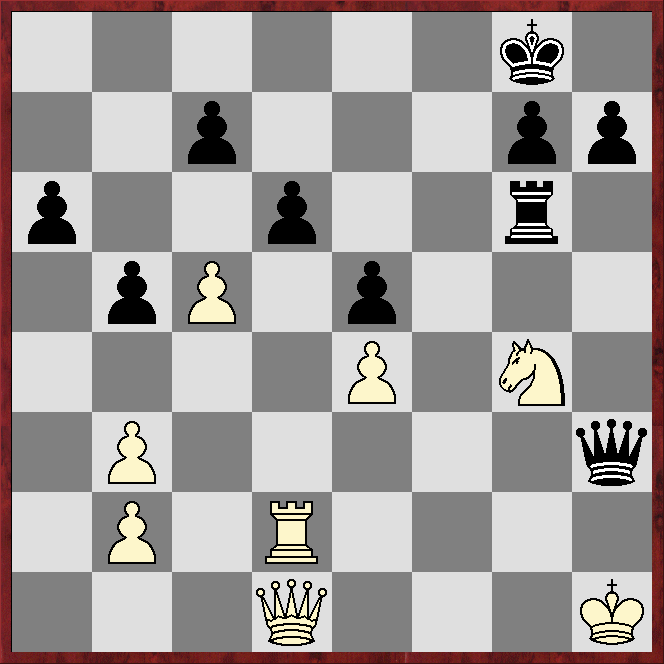That event is no more, but last year a five-round ersatz Paignton was held in nearby Torquay under the name Riviera Congress.
I played in it and thoroughly enjoyed myself, not least because my Fide rating at the time was 1852, but I turned in a 1992 performance.
Speaking to fellow competitors, the one main complaint people had was that the tournament, called the PM Open, was five rounds, rather than the seven associated with Paington.
Talking to other players at the recent British championships in Hull, I was surprised at how many did not know 'Paignton' was back, or knew it was back but did not realise this year's edition has a Fide tournament with the traditional format of seven rounds over seven days.
However, that is indeed the case, and entries, after a slow start, are starting to pick up pace.
There are 90 over the various tournaments, including 26 in the Fide Open, which is headed by British 50+ champion Keith Arkell.
One reason for my fondness for Paignton goes back to the fact it was one of the first tournaments I entered.
I had learnt the rules of chess aged six or seven in Libya, when the game was something my father taught me (with the aid of a book - he did not know the rules) to give me something to do during the short rainy season.
My first congress tournament was the Scunthorpe Minor, some 17 or so years later, followed by the Portsmouth Minor in another two years' time.
It was only after I moved up to London in 1988 that I got into playing chess regularly, my third congress being a Westminster Rapidplay in 1989.
Since then I have been playing with a devotion bordering on mania, including, in 1990, the Paington Challengers.
Here is my round-one game from that event.
R Bradley (162 BCF) - Spanton (147 BCF)
Spanish Berlin
1.e4 e5 2.Nf3 Nc6 3.Bb5 Nf6
I am quite shocked to discover I was playing this variation so long ago.
4.d3 Bc5 5.Be3!?
This logical-looking continuation goes back to at least 1883, but is not popular.
*****
*****
*****
*****
5...Bxe3!?
This gives White a half-open f file, but is the choice of Stockfish16.1 and Dragon1. Magnus Carlsen, on reaching the diagram position, preferred 5...Qe7!?
6.fxe3 d6 7.0-0 a6 8.Ba4 b5 9.Bb3 Na5 10.Nbd2 Nxb3 11.axb3 0-0
6.fxe3 d6 7.0-0 a6 8.Ba4 b5 9.Bb3 Na5 10.Nbd2 Nxb3 11.axb3 0-0
*****
*****
*****
*****
White has two half-open files, but Black's pawn-structure is more flexible, and Black has the only long-range minor piece. The engines give Black a slight edge.
12.Qe2 Qe7 13.Qf2 Ng4 14.Qe2 f5!? 15.exf5 Rxf5 16.h3 Nh6
Not 16...Nf6?? 17.g4.
17.Nh2 Bb7 18.e4 Rg5!?
This may be a tad over-ambitious.
19.Rf2 Rf8 20.Raf1 Rxf2 21.Rxf2 Bc8 22.Kh1 Nf7 23.Ndf1 Nh8?!
The engines prefer 23...Rg6.
24.Ng3 Ng6?!
Consistent, but dubious. The engines suggest 24...Qd8!? or 24...Rg6, but give White a slight edge.
25.Nd5 Qd8 26.Qf3 Be6
*****
*****
*****
*****
27.Ne3
The engines give 27.Nxc7!? Qxc7 28.h4 Rxg2+ 29.Rxg2 Nf4, claiming White is slightly better after 30.Rd2 or 30.Rf2.
27...Nf4?!
Better is 27...Nh4, with equality, according to the engines.
28.c4??
A hard-to-fathom blunder. The engines give White at least the upper hand after 18.h4, exploiting the lack of squares available to the black rook and knight.
28...Nxd3 29.Rd2 Nf4?
29...Nc5 is winning, according to the engines.
30.c5?!
Again h4 embarrasses Black.
30...Rg6 31.Nhg4?!
This looks reasonable, but the engines much prefer 21.Qd1!?
31...Bxg4 32.Nxg4 Qh4 33.Qd1??
But now Qd1 is a blunder. Possibly best is 33.Kg2, although Black remains a pawn up.
*****
*****
*****
*****
33...Nxh3
Even stronger is 33...Rxg4!?, the point being that after 34.Qxg4 Qe1+ 35.Kh2 Qxd2 36.Qc8+ there is no perpetual, although that is not easy to see in the diagram position.
34.gxh3 Qxh3+
Winning is 34...Rxg4!, again the point being Qxg4 is met by ...Qe1+ etc.
*****
*****
*****
*****
35.Rh2??
After 35.Nh2 the engines reckon Black's three pawns outweigh White's knight, no doubt helped by the exposed white king, but the result is still up for debate (at least at club level).
The game finished:
35...Qxg4 36.Qd5+ Kf8 37.Rf2+ Rf6 38.Rxf6+ gxf6 39.cxd6 cxd6 40.Qxd6? Kg7 41.Qe7+ Kg6 42.Qe8+ Kh6 43.Qf8+ Kh5 44.Qe8+ Kh4 45.Qc6 Qd1+ 46.Kh2 Qe2+ 47.Kh1 Kg3 0-1





No comments:
Post a Comment